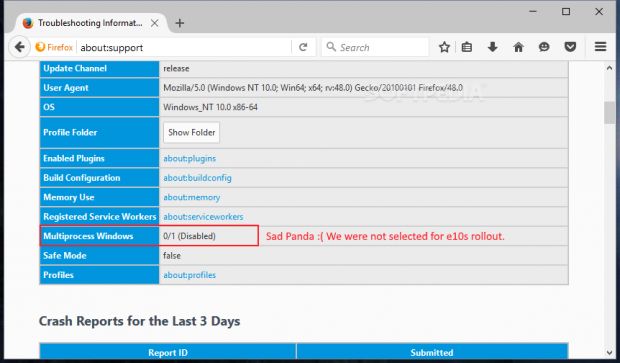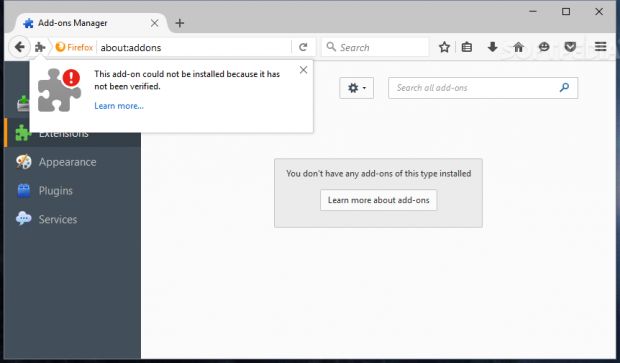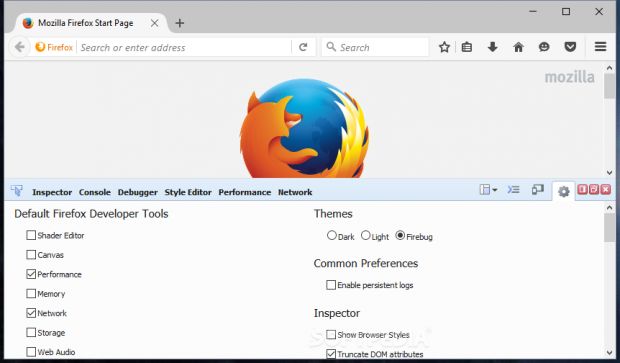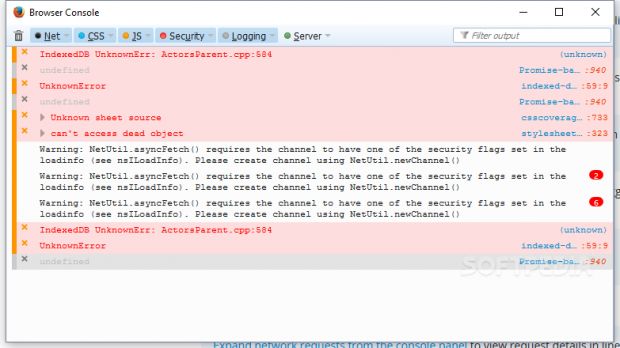Mozilla will debut Firefox 48 today, and looking back over the history of Firefox, the upcoming release marks one of the most important updates the browser has ever received.
Firefox 48 will be the version where Mozilla starts migrating users to using multi-process threads (e10s, Electrolysis), ships its first Rust component, and where mandatory add-on signing is actively enforced in the main stable branch without a way to deactivate or go around the feature.
Multi-process (e10s) rollout
Announced last year, Electrolysis, e10s, or multi-process support is Firefox's ability to process core browser operations separately from the content viewed on a Web page.
Multi-process support allows a page to crash without bringing the entire browser down with it and improves the browser's overall performance.
e10s rollout will take place in two phases, first in Firefox 48, and it will finish in Firefox 49, set for release on September 13, 2016.
Firefox with multi-process support will first reach 1 percent of the users who don't have any add-ons installed in their browser, and in ten days' time, Mozilla will activate e10s for 50 percent of the same users.
Full e10s support for Firefox instances using extensions or running on older versions of Windows will be available in the fall, during the second rollout phase scheduled for Firefox 49.
Mandatory add-on signing
But despite the ground-breaking features added to the Firefox core, the biggest rollout problem in Firefox 48 is the mandatory add-on signing process.
This refers to Firefox preventing users from installing any add-ons that have not been approved by Mozilla's testers. This is something similar to what Chrome employs, but Firefox users have been spoiled all these years, always having the capability of installing any add-on they've desired.
Because of this, the community's reaction to this new feature might not be that warm and fuzzy, as Mozilla expects, even if the feature is a clear win for overall browser security.
Mandatory add-on signing was introduced in Firefox 41 Nightly, announced in 2015 for Firefox 42 Stable, delayed for Firefox 44 Stable, and then for Firefox 46 Stable.
The feature was actually introduced in the Firefox 43 Stable branch, but an option in the about:config page always allowed users to turn it off.
Now, in Firefox 48, Mozilla will remove this option, making mandatory add-on signing "mandatory" for the first time.
An accent on security features
But the new Firefox security features don't stop with mandatory add-on signing. In Firefox 48, Mozilla will also ship its first Rust code with Firefox, inside the browser's media stack, which has been rewritten from scratch.
Rust is a programming language that's a revamped and improved version of C++ but that protects developers from accidentally including dangerous memory bugs in their code. It achieves this by how the language was constructed and by how developers write the code.
Additionally, the browser's security features have also been enhanced with two new warnings that appear when the user is trying to download potentially unwanted programs (PUPs) or uncommon files. More details on this feature in an article dedicated to this update.
Another Firefox 48 feature not known to many is the addition of a blocklist for known fingerprinting sources, which the browser will use to preserve the user's privacy against common tricks and exploits employed by advertising and Web-based malware domains that reveal the user's IP address and other browser and OS settings.
Developer changes and other features
But browsers aren't just vessels for surfing the Web. Web developers use browsers as stand-alone IDEs these days, and the Mozilla crew has prepared a few changes for the developer community as well.
The first of them is a Firebug theme in the Firefox Developer Tools. Last December, Mozilla announced that Firebug 3 would be integrated into Firefox's Developer Tools. A Firebug theme at this point makes sense since the add-on will be part of the Developer Tools anyway, and many people still prefer it and are well accustomed to its interface.
Furthermore, Firefox 48 will also feature a new Get Add-on page in the Add-ons section, new icons will show you links that are already in your bookmarks and open tabs, there's a new method of temporarily reloading add-ons, and Mozilla has also added support for a better version of the Error Console, nicknamed the Browser Console (CTRLS+SHIFT+J).
As for dead wood, as we previously reported in April, Mozilla has dropped Firefox support for old OS X versions such as 10.6 (Snow Leopard), 10.7 (Lion) and X 10.8 (Mountain Lion).
While the new WebExtensions API has been deemed stable, this new feature will be available in Firefox 49, in September.
At the time of writing, Firefox 48 is only available via Mozilla's FTP servers, so you can't just yet update via the browser's built-in updater.
You can get a fresh copy of Firefox 48 and install it over your older version to upgrade manually. Firefox 48 is available for download right now via Softpedia, for Linux, Mac, and Windows users.
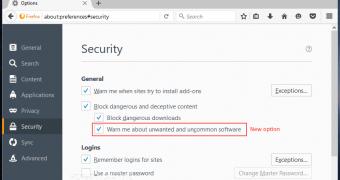
 14 DAY TRIAL //
14 DAY TRIAL // 